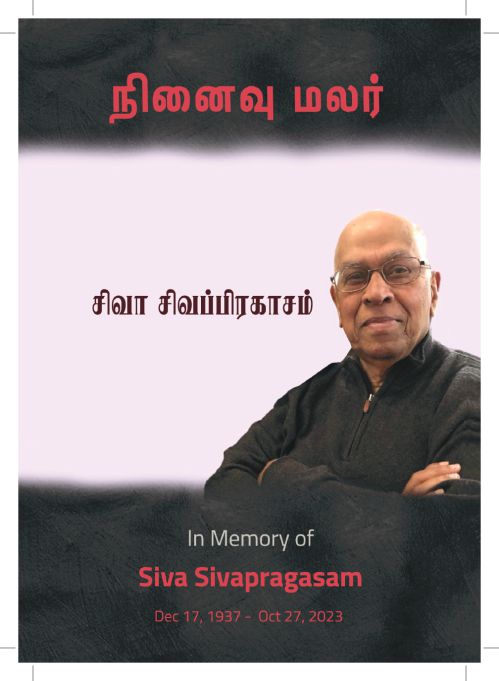By: Andrea Shanmugarajah

???But just because I’ll forget it some tomorrow doesn’t mean that I didn’t live every second of it today. I will forget today, but that doesn’t mean that today doesn’t matter???
??? Lisa Genova, Still Alice
My grandmother has dementia ??? she suffers from Alzheimer???s disease, the most common form of dementia.?? Watching someone so close to me progress through dementia has definitely opened my eyes to the stigma surrounding it.?? But it has also made me understand why it may be so easy for people to make assumptions about dementia patients, particularly when they do not know any personally.?? The struggle against dementia always sounds so valiant and noble on the surface, romanticized frequently.?? Like any battle, however, the reality is a far harsher, more harrowing and more human experience.
I saw it first hand with my grandmother ??? she practically raised me, cleaning up after my messes as a child, and making sure I was always well fed and dressed while my parents were at work, trying to make a life for all of us in a new country.?? That might be why, when the disease first started developing, I found myself taking measures to avoid acknowledging what was happening.?? She had been a rock in my life for longer than I could remember, but she was beginning to crack, and I wasn???t ready to accept it.?? I was scared.?? I would avoid walking in front of her room, would stop less often to talk, would look at the floor when we would talk.?? Because I knew exactly what I would see if I did look at her ??? I would see her own eyes clouding over in confusion far too often, I would see her struggling with activities she used to take for granted and I would see her internally struggling with the changes she was experiencing, showing a vulnerability I had never expected or believed possible in someone who I had always looked up to. But as time passed, the progression of the disease became impossible to ignore.?? It went beyond forgetting names and dates, to her needing our help to get dressed, to eat, to use the bathroom or shower.?? The tables had turned and now I cared for her the way she had done for me, but I still struggled to accept how much my grandmother???s abilities had changed in what felt like so short a time.?? The more I reflected on my own struggles since the onset of her disease, the more my being afraid transformed into being ashamed of how I???d been responding.?? I realized how unfair this all was on her.?? The struggle I had to cope with was miniscule to the changes she???d been forced to endure; the loss of independence, the inability to communicate, and, perhaps my most sobering realization, the emotional and social neglect from those she had done so much for.
By now, enough time has passed that I have been able to come to terms with the disease. I have accepted that though my grandmother no longer remembers who I am, or knows how to care for herself, underneath the sickness that is eating away at her brain, she is still the same woman that she always was. Dementia may have robbed my grandmother of her ability to communicate with us as she used to, and of her knowledge of the people and things that were once most important to her, but it is powerless to stop my efforts.?? My efforts to preserve her dignity, to make her remaining days easier and more comfortable, and to spend time with her will not cease.?? I will not let her be defined by her disease, but instead by the strength of the love we have shared since she first held me.
For the hundreds of people that are dealing with someone close to them being diagnosed with dementia ??? I urge you all not to make the same mistake I made initially. Accepting that within a short time, someone you care dearly about may no longer even recognize you can be one of the most difficult and heart wrenching realizations, but trying to ignore the truth won???t change the fact that time is running out. The moments you have with said loved ones, regardless of how far along their symptoms are, are precious, and should be treated as such. Twenty one years worth of time spent with my grandma does not seem like enough, and I wish more than anything else that I could have countless more, but those years have been enough to make me appreciate the woman residing beneath the disease. When I look at my grandmother now, I do not look at her as someone who is sick and struggling with even menial tasks, because that is no longer what I see. Instead, I see someone who is loving and generous and fiercely protective; in other words, I see the woman that she always was, regardless of how dementia has affected her. And more importantly, I see her as someone who once offered me all the love and support I could ever want, and now requires that I do the same for her. We have come full circle, but I would never dream of being embarrassed at the new needs of my grandmother. She needs me now the same way I once needed her, and I could not be happier to be here for her.
Andrea Shanmugarajah

Andrea Shanmugarajah
Andrea Shanmugarajah is a student at the University of Toronto, where she is currently pursuing an honours degree is Life Sciences. She volunteers with the Alzheimer???s society as a champion for dementia, which she became interested in due to her own personal experiences with her grandmother.?? She is involved with the senior community in Toronto, and hopes to eventually pursue a career in geriatrics, whereby she can help the elderly on a daily basis.
Andrea hopes to educate others about the struggles that many elderly people may face in Toronto, and how people of all ages can work towards making the community a more accepting and compassionate place for seniors.
??













